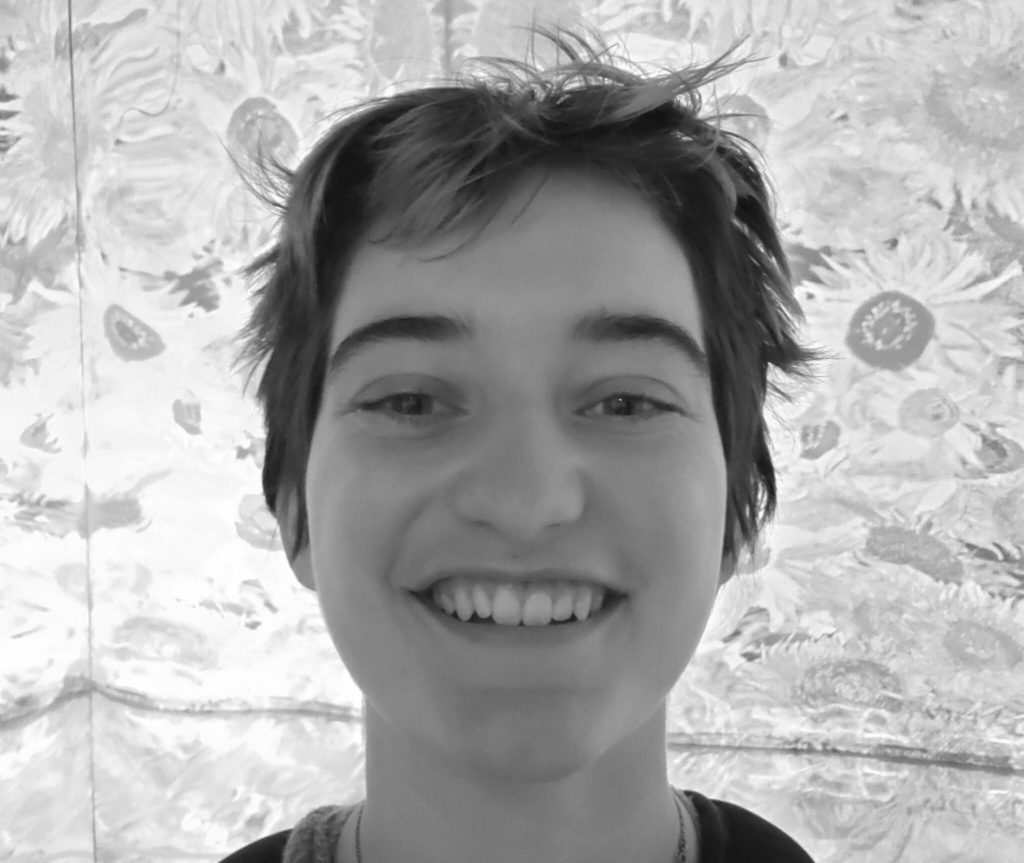Dr. Suzanne Wagner received a grant to visit University of Duisberg-Essen
One of our lab co-directors, Dr. Suzanne Wagner, received a grant to spend a month in University of Duisberg-Essen in Germany. Congratulations Suzanne!
One of our lab co-directors, Dr. Suzanne Wagner, received a grant to spend a month in University of Duisberg-Essen in Germany. Congratulations Suzanne!
One of our lab co-directors, Dr. Betsy Sneller, recently had a paper published in the Journal of the Acoustical Society of America. The article is titled “Sample size matters in calculating Pillai scores”, and it is authored by Joey Stanley (Brigham Young University) and Betsy Sneller.
Jack Rechsteiner (MA Linguistics) has accepted a funded PhD position in the Department of Linguistics at the University of Pittsburgh, starting Fall 2023.
Jack received their B.A. in Linguistics at Michigan State University in 2021, and is currently a 2nd year MA student in the Linguistics program at MSU. Their research focuses primarily on sociophonetic variation in nonbinary speakers.
Socio Lab member Mikayla Thompson (Linguistics major) has been accepted for a competitive NSF Research Experience for Undergraduates (NSF-REU) opportunity this summer.

Mikayla will spend 8 weeks at the University of Oregon as part of its initiative “Increasing American Indian/Alaska Native Perspectives in Field and Experimental Linguistics“. The REU includes instruction on topics in descriptive linguistics and experimental linguistics, hands-on research in two labs, and input from local Indigenous educators and researchers.
Mikayla shared why she chose this program and her goals and hopes:
“This opportunity to study language revitalization methods at the University of Oregon stood out to me initially because of the particular nature of the classes and research. The focus on language revitalization processes in relation to my compiled knowledge of linguistics is exactly what I would like to do post-graduation. I intend to utilize the knowledge presented in these classes and fieldwork to better inform myself of methods of preserving and reviving Indigenous American languages. As a descendent of the Cherokee Nation, I know quite intimately the degree to which language repression and subsequent language endangerment has influenced Indigenous communities, and what it means for the future. I hope to apply what is learned at the University of Oregon to my own communities, so that I may more deeply familiarize myself with my ancestral language, Cherokee, and to eventually pass it down to others in my communities.”

Socio Lab member Newt Kelbley (BA Linguistics) has been accepted in to the Forensic Linguistics MA program at Cardiff University in Wales. Congratulations, Newt!
Newt is a Linguistics major investigating the syntax of sociolinguistic prompt questions in the MI Diaries project. Newt will start the one-year MA program in the fall of 2023. They shared why they want to study Forensic Linguistics at Cardiff University:
“I want to study there because it is one of the few places that have such a specific degree program, and I want to know more about the interface between language and law. I’m interested in this because this branch of linguistics is still growing and reaching its potential, and the applications seem unlimited. Mostly what’s appealing is what I’ve learned about the work of forensic linguists seeking to critically highlight problems in the judicial system, like comprehension challenges in jury texts, inadequate courtroom translations, or falsified written documents. Using research to inform and enhance the practice of law and make it fairer for the disadvantaged seems like a noble goal.”